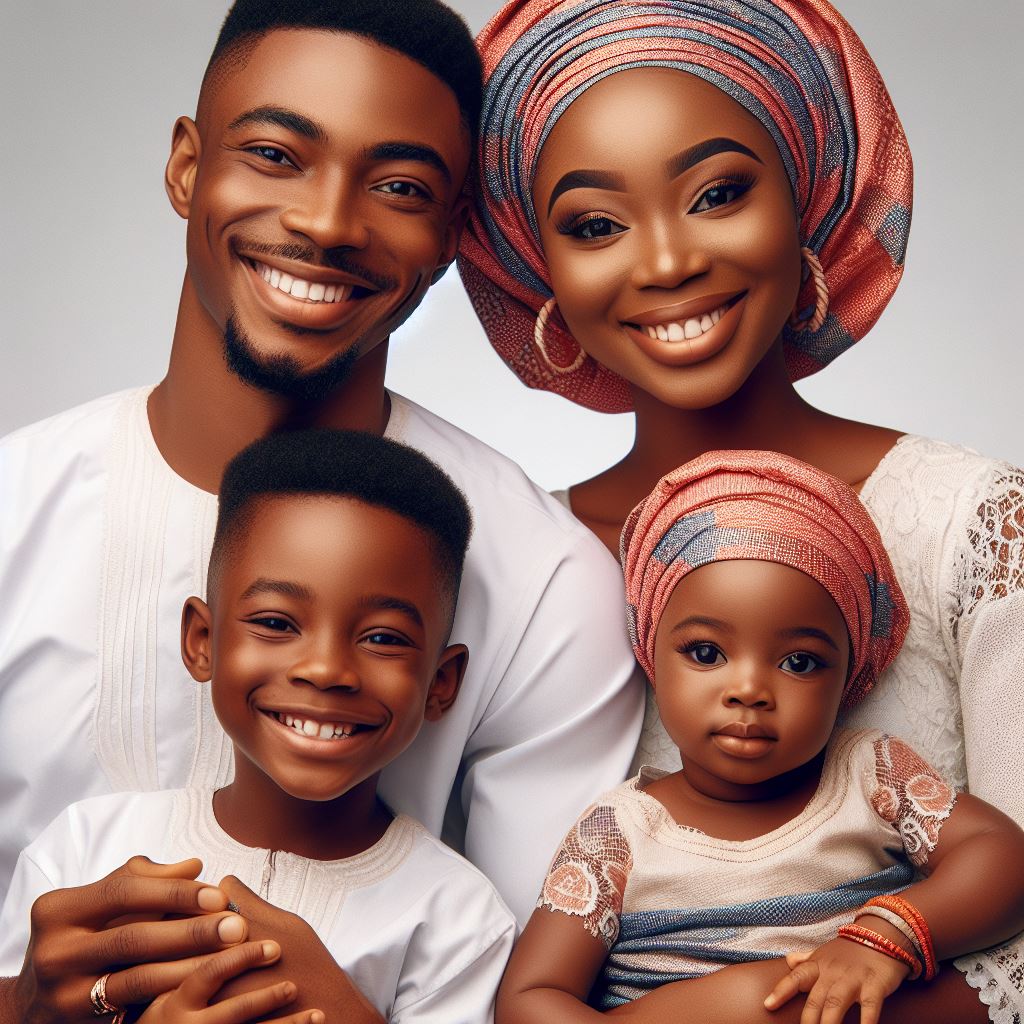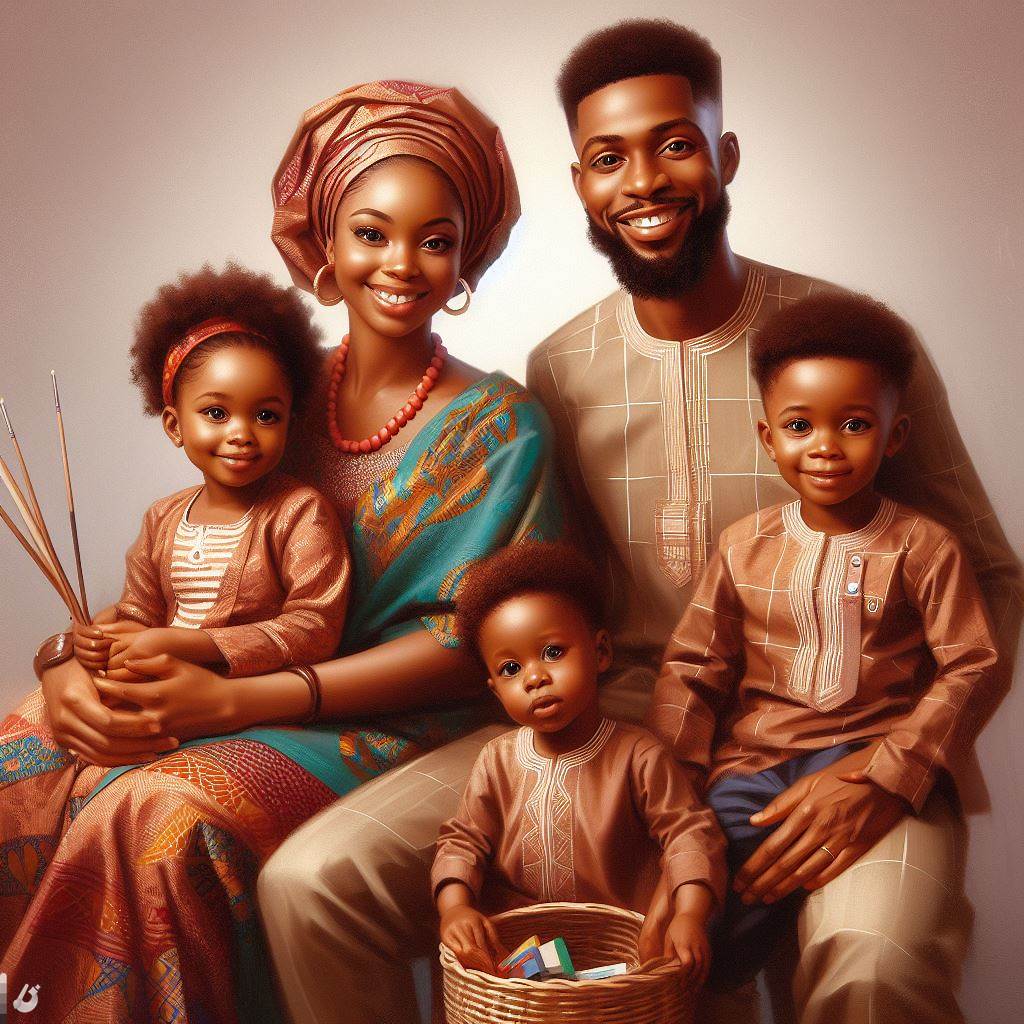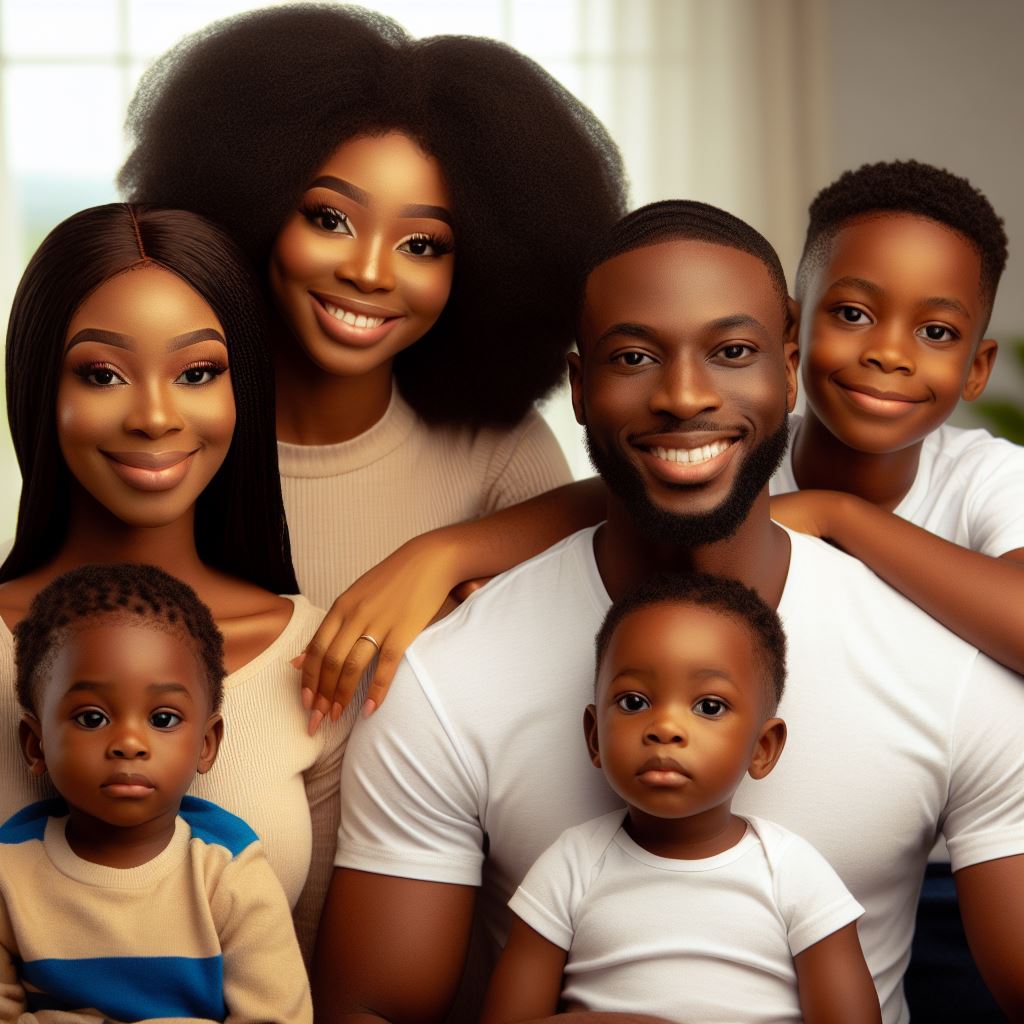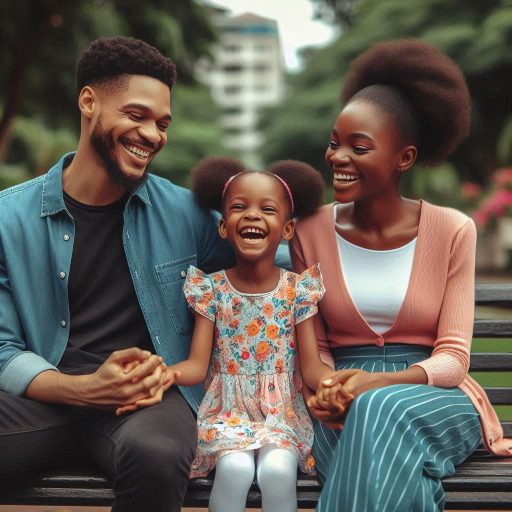Introduction
Gender diversity is a concept that recognizes and embraces the variety of genders beyond traditional male and female identities.
Gender diversity acknowledges that gender is not binary and includes identities such as transgender, non-binary, and genderqueer.
Celebrating and embracing gender diversity in Nigeria promotes inclusivity, respect, and equality for all individuals, regardless of their gender identity.
It allows children to grow up in an environment that values diversity and promotes acceptance, nurturing their self-esteem.
By celebrating gender diversity, Nigerian children can learn to appreciate and understand different perspectives, fostering empathy and tolerance.
It helps break down stereotypes and discriminatory attitudes, fostering a more inclusive and progressive society.
Promoting gender diversity empowers children to express themselves freely and authentically, promoting their mental well-being.
By embracing gender diversity, Nigeria can create a more inclusive society where everyone is respected and treated equally.
Celebrating gender diversity in Nigeria will contribute to the development of a more progressive and accepting society for future generations.
Understanding gender identity
Gender identity refers to a person’s innermost concept of themselves as male, female, a blend of both, or neither.
Gender Identity and its Development in Children
- Gender identity development begins in early childhood where children start to understand their own gender.
- Children acquire a sense of gender identity through socialization, observation, and interaction with others.
- They may display gender-typed behaviors, preferences, and interests based on societal expectations.
- Gender identity can be affirmed or challenged by experiences, culture, and individual differences.
Difference between Gender Identity and Biological Sex
- Biological sex is determined by physical characteristics such as reproductive organs and chromosomes.
- Gender identity is an individual’s deeply-felt sense of being male, female, or another gender.
- Gender identity may not align with one’s assigned sex at birth, leading to gender diversity.
- Gender diversity recognizes that gender is a spectrum and goes beyond the binary understanding of male and female.
Importance of Respecting and Validating Children’s Gender Identity
- Validating children’s gender identity fosters their self-esteem, mental health, and overall well-being.
- Gender affirmation creates a safe and inclusive environment for children to explore and express themselves authentically.
- Respecting children’s gender identity promotes acceptance, reducing the risk of discrimination and social exclusion.
- By allowing children to be true to themselves, they are more likely to thrive and develop a positive self-image.
Benefits of Understanding Gender Diversity with Nigerian Children
- Promotes inclusivity and acceptance in Nigerian society.
- Creates a supportive environment for gender-diverse children to flourish.
- Reduces the risk of bullying and discrimination faced by gender-diverse children.
- Empowers children to embrace their authentic selves, leading to better mental health.
- Cultivates empathy and understanding among children, promoting harmony and tolerance.
- Challenges societal stereotypes and outdated gender norms, fostering a more progressive society.
- Enables gender-diverse children to fully participate in all aspects of life without limitations.
- Promotes equality and human rights by recognizing and respecting diverse gender identities.
How can Nigerian society celebrate gender diversity with children?
- Encourage open and respectful dialogue about gender diversity at home, in schools, and communities.
- Provide educational resources and materials that promote gender diversity and inclusivity.
- Organize workshops and training sessions for parents, teachers, and caregivers on understanding gender diversity.
- Incorporate gender diversity into school curricula, promoting awareness and acceptance from an early age.
- Support and establish safe spaces where gender-diverse children can freely express themselves without judgment.
- Celebrate and amplify positive role models who defy traditional gender expectations and norms.
- Foster a culture of acceptance by showcasing diverse gender identities in media and popular culture.
- Advocate for policies and laws that protect gender-diverse children’s rights and ensure their equal treatment.
In essence, understanding and celebrating gender diversity with Nigerian children is crucial for their well-being and societal progress.
By acknowledging and validating their gender identity, we create an environment that embraces inclusivity, fosters empathy, and challenges harmful stereotypes.
Let us promote acceptance, respect, and support for all children, regardless of their gender identity.
Read: Breaking Gender Norms: Stories from Nigerian Families
Challenging gender stereotypes
Gender diversity is a crucial topic that needs to be addressed, especially when it comes to Nigerian children.
Parenting Made Just for You
Get personalized Parenting Solutions tailored to your child’s needs. Transform your parenting journey with expert guidance in 1-3 days.
Get StartedStereotypes surrounding gender roles and expectations have long been prevalent in Nigerian society, and it is high time we challenge them.
By discussing the harmful effects of perpetuating these stereotypes and providing tips on breaking them down, we can promote a more inclusive and diverse society.
Prevalent Gender Stereotypes in Nigeria
In Nigerian culture, there are various gender stereotypes that are deeply ingrained.
Boys are often expected to be strong, tough, and independent, while girls are expected to be gentle, nurturing, and submissive.
These stereotypes shape societal expectations and limit the full potential of both boys and girls.
Girls are often encouraged to prioritize marriage and motherhood over education and career aspirations.
Boys, on the other hand, are discouraged from showing vulnerability or pursuing interests perceived as feminine, such as cooking or dancing.
These stereotypes not only reinforce rigid gender roles but also contribute to gender inequality.
Harmful Effects of Perpetuating Gender Stereotypes
Perpetuating gender stereotypes has detrimental effects on children.
When boys are constantly told that showing emotions is a sign of weakness, they may grow up lacking emotional intelligence and struggle with mental health issues.
Similarly, when girls are limited to certain roles and responsibilities, their potential is stifled, leading to a lack of representation in decision-making positions in society.
Furthermore, gender stereotypes create an environment where discrimination and gender-based violence thrive.
Boys who grow up believing that masculinity is synonymous with dominance are more likely to perpetrate violence against women.
Girls who internalize the idea that they are inferior may tolerate mistreatment and be more susceptible to abuse.
Unveil the Perfect Name that Tells Your Family's Story
Let us help you find a name that embodies your family's values, traditions, and dreams. Our personalized consultation weaves cultural insights to create a name that's uniquely yours.
Get StartedTips on Breaking Down Stereotypes and Promoting Gender Diversity
It is crucial to challenge gender stereotypes and promote gender diversity in order to create a more inclusive society. Here are some tips on how we can achieve this:
- Education and Awareness: Educate children and adults about the harmful effects of gender stereotypes and the importance of gender equality.
Start conversations and encourage critical thinking about gender roles and expectations. - Encourage Gender-Neutral Activities: Provide equal opportunities for boys and girls to engage in activities traditionally associated with the opposite gender.
Encourage boys to explore their creative side and girls to participate in sports or leadership roles. - Positive Role Models: Highlight and celebrate individuals who break gender stereotypes.
Showcase diverse role models in various fields, including science, arts, and sports, to inspire children to pursue their passions regardless of gender expectations. - Avoid Gendered Toys and Clothing: Encourage children to play with toys that are not limited to strictly gendered stereotypes.
Purchase clothing and accessories that allow for self-expression rather than conforming to traditional gender roles. - Empowerment through Education: Provide equal access to education for both boys and girls.
Teach children that education is their path to success and that both genders are capable of achieving their goals.
By challenging gender stereotypes, we can create a society that fosters inclusivity, diversity, and equal opportunities for all.
Let’s celebrate the uniqueness in every individual, encouraging Nigerian children to embrace their true selves without the constraints of outdated stereotypes.
Together, we can build a brighter future for all.
Read: Choosing Gender-Neutral Toys: Advice for Parents
Empowering Parents and Educators
Gender diversity is an important topic that needs to be celebrated with Nigerian children.
In order to create a more inclusive society, it is essential to empower parents and educators.
By providing resources and guidance, we can nurture gender diversity in children and promote a culture of inclusivity and equality.
Providing Resources and Guidance
Parents and educators play a crucial role in shaping the perspectives of children.
It is important to equip them with the tools and knowledge to embrace gender diversity.
Workshops and training should be organized to raise awareness about the importance of inclusivity.
By partnering with organizations that specialize in gender diversity, we can access valuable resources.
These resources can include books, videos, and websites that provide guidance on fostering inclusivity.
Suggesting Books, Toys, and Media
Books play a significant role in shaping children’s perspectives.
Suggesting diverse books that depict characters with different gender identities can be influential.
Toys should also be selected carefully, ensuring they do not reinforce gender stereotypes.
Media, including TV shows and movies, should reflect diverse gender identities and promote inclusivity.
Tips on Creating an Inclusive Environment
Start by fostering open conversations about gender diversity at home and in schools.
Encourage children to ask questions and express their feelings without judgment.
Create a safe space where children can freely explore and express their own gender identities.
Avoid using language that perpetuates stereotypes and instead promote respect and acceptance.
Ensure that school policies are inclusive and address the needs of all students.
Organize events and activities that celebrate different gender identities and promote equality.
In short, celebrating gender diversity with Nigerian children requires empowering parents and educators.
By providing them with resources, guidance, and support, we can create a more inclusive society.
Suggesting books, toys, and media that promote inclusivity and equality is also crucial.
Additionally, creating an inclusive environment at home and in schools through open conversations, safe spaces, and inclusive policies will help cultivate acceptance and understanding.
Together, we can nurture gender diversity and build a society that celebrates the uniqueness of every individual.
Read: Gender Expectations: Navigating Parenting in Nigeria

Importance of Open Conversations on Gender Diversity
Open conversations on gender diversity are crucial in today’s Nigerian society.
By encouraging dialogue about this topic with children, we can create an inclusive and accepting environment.
Open conversations allow children to understand and appreciate the differences in gender identities and expressions.
It helps us challenge traditional gender stereotypes and create a more equal society.
Furthermore, discussions about gender diversity promote empathy, compassion, and acceptance.
It teaches children to respect others’ choices and identities, fostering a harmonious community.
Encouraging Dialogue about Gender Diversity with Nigerian Children
There are various ways we can encourage conversations about gender diversity with Nigerian children:
- Start early: Introduce the concept of gender diversity from an early age, using age-appropriate language and examples.
- Normalizing differences: Encourage children to embrace and celebrate the differences in gender identities and expressions.
- Lead by example: Be open-minded and accepting yourself, serving as a role model for children.
- Use inclusive language: Teach children inclusive vocabulary that respects diverse gender identities.
Benefits of Open Conversations on Gender Diversity
Open conversations about gender diversity have several benefits:
- Reduced discrimination: Understanding different gender identities decreases discrimination and promotes equality.
- Empowerment: Conversations empower children to express themselves authentically, regardless of societal expectations.
- Improved mental health: By discussing gender diversity, we create a supportive environment, reducing the risk of mental health issues.
- Enhanced relationships: Open conversations foster stronger relationships built on understanding and acceptance.
Strategies for Addressing Questions and Concerns from Children
Children may have questions or concerns regarding gender identity and diversity. Here’s how to address them:
- Listen actively: Give children a safe space to express their thoughts and concerns without judgment.
- Answer honestly: Provide age-appropriate answers, acknowledging that it’s okay not to have all the answers.
- Promote acceptance: Emphasize the importance of accepting all gender identities and expressions.
- Provide resources: Offer books, articles, or videos that help children further explore the topic.
Open conversations on gender diversity with Nigerian children pave the way for a more inclusive and accepting society.
By normalizing and celebrating differences, we can empower the next generation.
Read: The Impact of Culture on Gender in Nigeria
Celebrating Role Models and Success Stories
In today’s blog section, we will explore the importance of celebrating gender diversity with Nigerian children.
We will discuss the significance of role models and success stories, highlight Nigerian figures who challenge gender norms, share stories of individuals overcoming gender-related challenges, and emphasize the importance of recognizing and celebrating achievements.
- Role models play a crucial role in inspiring and motivating children to break gender stereotypes.
- By celebrating successful individuals from diverse backgrounds, we can encourage children to dream big regardless of their gender.
- When children see people like them succeeding, it instills confidence and a belief in their own abilities.
- Highlighting role models also helps create a more inclusive society that values diversity and equal opportunities.
Nigerian Role Models Who Challenge Gender Norms
- Nigeria is rich with role models who have defied societal expectations regarding gender.
- We can shine a light on these individuals to showcase the power of breaking barriers.
- From female engineers to male nurses, these role models challenge outdated notions.
- By showcasing their achievements, we inspire children to pursue their passions regardless of societal expectations.
Success Stories of Overcoming Gender-Related Challenges
- Many individuals face gender-related challenges in their lives, but they triumph over adversity.
- We must share these stories to foster a sense of resilience and strength in young minds.
- By emphasizing the journey and the hurdles overcome, we promote compassion and support.
- Sharing these stories helps children understand that their own struggles should not define their potential.
Importance of Recognizing and Celebrating Achievements of Diverse Individuals
- Recognizing and celebrating achievements of diverse individuals creates a more inclusive society.
- When we acknowledge accomplishments irrespective of gender, we break down discriminatory barriers.
- Celebrating diversity teaches children to appreciate and respect different perspectives and experiences.
- By valuing all individuals equally, we create an environment where everyone can thrive.
In a nutshell, celebrating gender diversity with Nigerian children is essential for fostering inclusivity and equality.
By highlighting role models and sharing success stories of individuals who challenge gender norms, we inspire children to believe in themselves and pursue their dreams.
Recognizing and celebrating achievements of diverse individuals creates a society that values and respects everyone, irrespective of their gender.
Let us empower Nigerian children to embrace their unique identities and strive for a brighter future.
Conclusion
Celebrating gender diversity with Nigerian children is crucial for their growth and development.
It helps to create an inclusive society that values equality and respect for all genders.
By encouraging and promoting inclusivity, we can educate the younger generation about the importance of embracing diversity.
It is our responsibility to teach them acceptance and respect for people of all gender identities.
We must continue to advocate for gender diversity in our communities and support initiatives that promote equality.
It is through our collective actions that we can create a society where every individual is valued and treated with dignity.
Let us actively engage in conversations, workshops, and awareness campaigns to foster an environment that celebrates and embraces gender diversity.
Embrace the differences and uniqueness that each gender brings, and let us strive for a society where everyone is given equal opportunities and rights.
Together, we can create a future where Nigerian children grow up in a world that embraces and respects all genders.
It is up to us to pave the way for a better tomorrow, one that is inclusive, diverse, and truly equal for all.




